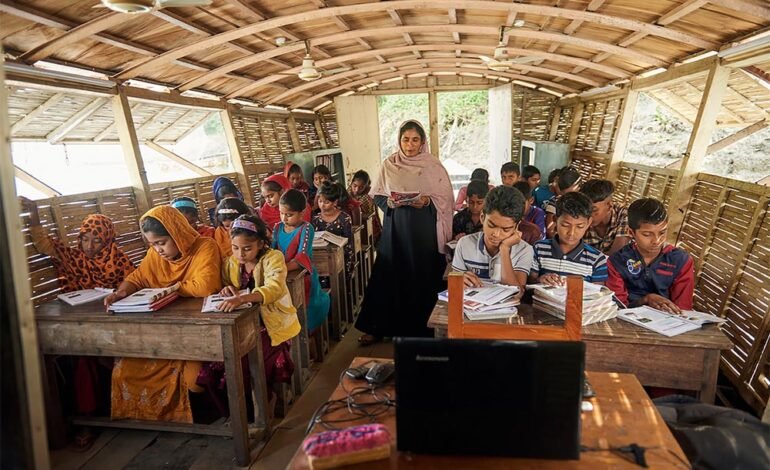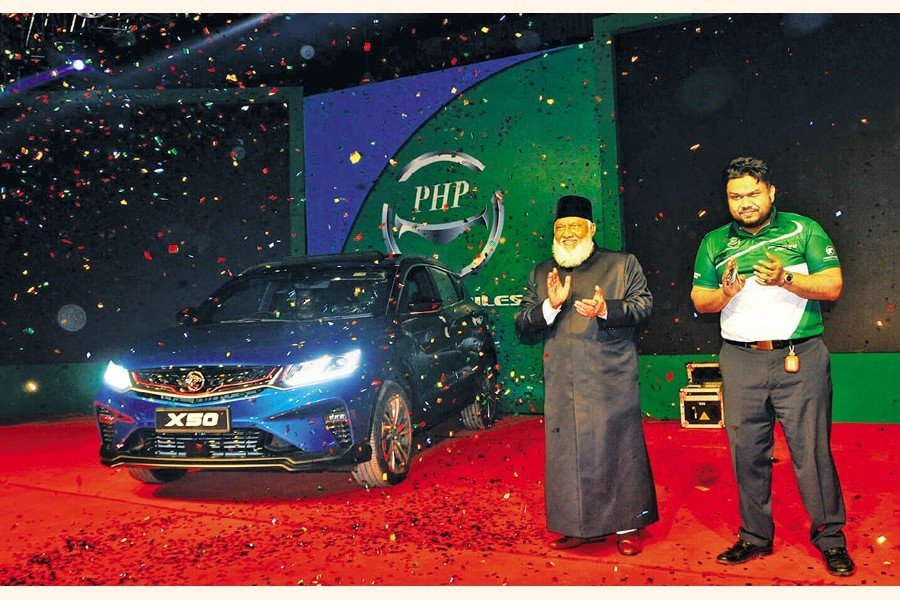Mohammed Rezwan’s Floating School Won the UNESCO Literacy Award

How Rezwan’s Floating School Won UNESCO Literacy Award
When the monsoon arrives in Bangladesh, rivers swell, lands submerge, and schools often close for months. But one visionary turned this recurring challenge into a beacon of hope. Mohammed Rezwan, a Bangladeshi architect and social innovator, founded a revolutionary project called Shidhulai Swanirvar Sangstha, which operates the now world-famous floating school Bangladesh model.
In 2025, this inspiring initiative received the UNESCO Confucius Prize for Literacy, a global recognition of its extraordinary contribution to education, sustainability, and community empowerment.
The UNESCO Literacy Award: A Global Recognition of Local Genius
The UNESCO Confucius Prize for Literacy honors outstanding efforts in promoting functional literacy, especially among rural and disadvantaged populations. This year’s theme, “Promoting literacy in the digital era,” highlighted innovative ways to make education accessible despite social and environmental barriers.
Rezwan’s floating school stood out among global entries for one simple reason — it didn’t just teach literacy; it redefined access to education in one of the most climate-vulnerable nations on Earth.
The Birth of a Floating Dream
The story of the floating school Bangladesh began in the late 1990s. Growing up near the flood-prone northwest of the country, Mohammed Rezwan saw firsthand how floods routinely disrupted children’s education. Many students were forced to drop out simply because their schools were underwater.
Driven by the question, “If children can’t go to school, why can’t school go to them?”, Rezwan designed and launched the first boat school in 2002 under his non-profit, Shidhulai Swanirvar Sangstha.
What started as a single boat has grown into a full fleet — an education system that floats, sails, and adapts to the rhythms of Bangladesh’s waterways.
How the Floating School Works
Each floating school is essentially a boat transformed into a classroom. Equipped with solar panels, computers, books, and teaching materials, these boats travel through flooded villages, docking near communities to hold classes for children who otherwise would have no access to learning.
The boats are also:
-
Environmentally friendly, powered by renewable solar energy.
-
Digitally equipped, allowing students to learn computer skills and access the internet.
-
Community-centered, hiring local teachers (many of them women) and engaging parents in literacy programs.
In addition to formal education, the organization also runs floating libraries, floating training centers, and floating health clinics — all designed to keep essential services running when roads and schools are inaccessible.
Education That Floats Beyond Borders
The impact of Rezwan’s work is remarkable. His organization has helped over 80,000 students and reached more than 800,000 people through various education and literacy programs.
The floating school Bangladesh project doesn’t just target children — it includes adult literacy, vocational training, and climate adaptation education. Women in rural areas learn livelihood skills such as poultry farming, sewing, and solar lamp maintenance, enabling them to contribute economically to their families.
Rezwan’s innovation is now being studied and replicated in other countries across Asia and Africa as a model for climate-resilient education.
Why the UNESCO Literacy Award Matters
Winning the UNESCO Confucius Prize for Literacy puts Bangladesh on the global education map. It signals that innovation doesn’t always come from high-tech labs — sometimes, it comes from a boat floating through a flooded village.
The prize also brings with it a $30,000 grant, which will help Shidhulai Swanirvar Sangstha expand its fleet and introduce new digital tools for remote learning.
Rezwan’s words at the award ceremony summed up the project’s spirit perfectly:“This award belongs to the children and communities who refused to let floods wash away their dreams.”
Bridging Gaps: From Literacy to Digital Empowerment
In the era of digital learning, Rezwan’s initiative bridges the digital divide in rural Bangladesh. Each boat is a floating Wi-Fi classroom, giving children the chance to learn basic computing, internet research, and even coding — skills that are crucial in the 21st century.
Moreover, during the COVID-19 pandemic, when schools around the world shut down, these floating classrooms continued to operate safely in open-air conditions, ensuring uninterrupted learning.
Climate Change, Resilience, and Hope
Bangladesh is one of the countries most vulnerable to climate change. Rising sea levels and unpredictable floods threaten millions of lives and livelihoods each year.
Rezwan’s floating school Bangladesh model isn’t just an educational innovation; it’s a climate adaptation strategy. Instead of fighting the water, these schools work with it — showing the world how communities can adapt creatively to changing environments.
In doing so, the project embodies the principles of sustainability, resilience, and empowerment — aligning perfectly with UNESCO’s global goals for education and climate action.
A Model for the Future
The success of Rezwan’s initiative has inspired policymakers and NGOs around the world to consider mobile and floating education models. The concept has been featured by global organizations like the World Economic Forum, Reuters, and National Geographic, highlighting its potential to reshape education in disaster-prone regions.
By blending architecture, technology, and social innovation, Mohammed Rezwan has proven that education doesn’t have to be tied to land — it can sail wherever students need it most.
Challenges Ahead
Despite global praise, the journey isn’t without challenges. Maintaining boats, ensuring consistent funding, training teachers, and scaling operations to reach new areas remain ongoing hurdles.
However, the UNESCO recognition has already attracted new attention from governments, donors, and environmental education advocates. There’s growing hope that the floating school Bangladesh model could become a cornerstone of national climate-resilient infrastructure.
Floating Toward a Brighter Tomorrow
Mohammed Rezwan’s floating schools are more than just boats — they’re a symbol of hope, resilience, and ingenuity. In a country where floods often threaten the future of children, these schools are proving that education can rise above any tide.
The UNESCO literacy award shines a global spotlight on this Bangladeshi innovation, reminding the world that where there is creativity and compassion, no challenge is too vast.
Rezwan’s dream has set sail — and it continues to carry thousands of young learners toward a brighter, more literate future.






